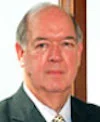|
|
Football season begins in a few weeks, so it’s time for fanatics to commence their “extended spring training” — as they say in baseball — and rehearse acting crazy while ignoring what the National Football League really is: a money generating business that couldn’t care less about its fans and gives second and third chances to its lawbreaking employees while dragging its heels regarding the many unanswered questions regarding an increasing numbers of its players reporting symptoms of the degenerative brain disease Chronic Traumatic Encephalopathy.
This season, even experienced fans will have to change their ways in order to show devotion to teams that over-price tickets or pull up roots and move to another city because the exorbitant amount of money they make is never enough. That’s because the NFL has added a new vehicle that they want fanatics to embrace to show their fealty to the league that destroys limbs, brains and lives.
No longer is face painting, buying overpriced jerseys or exhibiting your manhood by loading up on beer at games enough. It’s now necessary to support your team by purchasing bottles of liquor, because the NFL has decided to allow TV spirits commercials on its telecasts, according to a story in the June 5 Wall Street Journal.
But not to worry, at least for the time being. The WSJ story said that liquor commercials will be limited to only four 30-second spots per game. And you can bet the farm that each commercial will have a reminder to “drink responsibly.” The ads should also not target children, according to the story. A person has to be in denial to believe that, when you consider the number of NFL players who have been busted for DUIs. In some ways, the liquor ads are a natural fit.
Hypocrisy in the quest of dollars is nothing new to the NFL. This year started out slowly for the league but, beginning in March, its true character began emerging. After decades of saying it would not permit a team in Las Vegas because of its gambling environment, it approved the move of the Oakland Raiders to the Capital of Second Chances. Of course, NFL teams and owners have been associated with gambling prior to approving the move; they’ve had an association with fantasy football gambling for a few years.
To make matters worse, when the NFL draft began in late April, at least six players were under consideration despite accusations of unsportsmanlike conducts, including rape, domestic violence abuse, drug use and carrying an unlicensed pistol, according to press reports.
Speaking about one player, the New York Giants general manager Jerry Reese was quoted in the April 30 New York Times as saying the team believed he “has everything together now,” which could be the motto of both the NFL and parole boards.
Then, in his May 22 column, Jason Gay of the WSJ reported that Gisele Bundchen said that her husband, New England Patriot quarterback Tom Brady, had concussions that were not reported to the NFL. The NFL’s response went something like, “We’ll look into it.”
Liquor ads on NFL telecasts might be new, even though beer ads are almost as frequent as a player suffering a hit that might lead to C.T.E. Before the first play of the regular season, the decades old concussion issue was raised again, when in the May 30 Science Times a story based on an eight-year study about speech patterns of NFL players in the professional journal Brain and Language was published. The study showed a greater decline in linguistic ability in NFL players who gave interviews than in NFL coaches and execs who never played football. Then the concussion issue exploded when, on July 26 and 27, the New York Times ran a huge, two-part story about new C.T.E. findings published in the Journal of the American Medical Association.
The NFL says it’s okay for fanatics to mimic NFL players’ speech patterns without putting on the pads. All you have to do is have a few shots of NFL-sanctioned sponsors’ spirits, augmented by a few bottles of NFL sponsor-approved beer.
So, when watching the games with your kids, don’t forget to send them out of the room during commercial breaks and tell them that those commercials are not aimed at them, just like the cigarette TV commercials of the past weren’t before the feds banned them. And don’t forget to “drink responsibility.”
***
Arthur Solomon was a senior VP at Burson-Marsteller. He now is a contributor to public relations and sports business publications, consults on PR projects and was on the Seoul Peace Prize nominating committee. He can be reached at [email protected].

 Arthur Solomon
Arthur Solomon
 Even the most iconic sporting or ceremonial event can be deep-sixed by an overzealous member of the crowd, so crisis comms pros need to be prepared.
Even the most iconic sporting or ceremonial event can be deep-sixed by an overzealous member of the crowd, so crisis comms pros need to be prepared. The Super Bowl, with its massive audience and sky-high ad cost, creates intense pressure to deliver. But when they hit the mark, these ads can become cultural touchstones.
The Super Bowl, with its massive audience and sky-high ad cost, creates intense pressure to deliver. But when they hit the mark, these ads can become cultural touchstones. Teneo has hired Nick Greenslade, deputy sports editor at The Times and Sunday Times, as managing director for its strategy and communications unit in London.
Teneo has hired Nick Greenslade, deputy sports editor at The Times and Sunday Times, as managing director for its strategy and communications unit in London. Jon Schwartz, a former SVP, communications, marketing, digital & social for the Big Ten Conference, is signing up with Prosek Partners to launch a new sports business unit.
Jon Schwartz, a former SVP, communications, marketing, digital & social for the Big Ten Conference, is signing up with Prosek Partners to launch a new sports business unit. USA Fencing has retained Finn Partners ahead of the 2024 Paris Summer Olympics and Paralympics Games.
USA Fencing has retained Finn Partners ahead of the 2024 Paris Summer Olympics and Paralympics Games.


 Have a comment? Send it to
Have a comment? Send it to 
No comments have been submitted for this story yet.